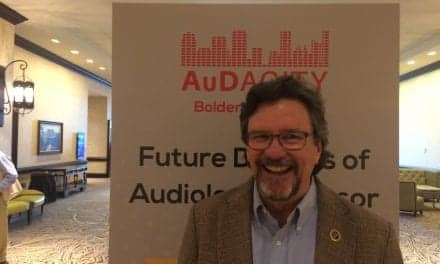Wisconsin State Representative Shelia Stubbs (D-Madison) released a statement in support of the Wisconsin Assembly Bill 374, which would amend a statute that prohibits Wisconsin businesses from engaging in the practice of selling, dealing, and fitting OTC hearing aids without a license.
“Hearing loss affects approximately 48 million Americans. About 500,000 of them are Wisconsin residents. Unfortunately, however, only 1 in 5 people with hearing impairments seek care or treatment for their hearing loss,” according to a statement from Stubbs. “This is not for lack of concern but instead a lack of access to the resources necessary to treat their symptoms. Which is why OTC hearing aids must be viewed as public health issue, and handled with the utmost importance, and priority, as hearing loss is only projected to incline in both population and severity in the coming decades.
Stubbs’ statement was released following her testimony for Assembly Bill 374 in the Assembly Committee on Regulatory Licensing Reform.
Under current Wisconsin state law, no person may engage in the practice of selling or fitting hearing aids they hold a license as a hearing instrument specialist issued by the Department of Safety and Professional Services or a license as an audiologist issued by the Hearing and Speech Examining Board, according to text from the bill. The current law is at odds with the new OTC hearing aid rule implemented by the FDA in 2022.
Her statement continued: “AB 374 will perform the necessary task of updating our state law with regard to selling and fitting over-the-counter (OTC) hearing aids to create synergy with federal guidelines regarding this practice. This legislation can ensure that residents in our state possess the ability to be fitted and sold the medical device needed to live, work, and enjoy life comfortably. Under current state law, Wisconsin businesses are prohibited from engaging in practice of selling, dealing, and fitting OTC hearing aids. This statute directly conflicts with federal guidelines of the industry. Not only will passing AB 374 make hearing aids more affordable, accessible and uphold Wisconsin’s reputation as a Forward state but also it will equally improve health outcomes for generations of Wisconsin residents. Studies from the National Institute for Health and the University of Wisconsin-Madison, concluded that hearing loss leads to greater risk of social isolation, depression, poorer satisfaction with healthcare, and cognitive decline.
Further reading: Senators Introduce Bipartisan Bill to Expand Medicare Audiology Assistance
Photo: Dreamstime





